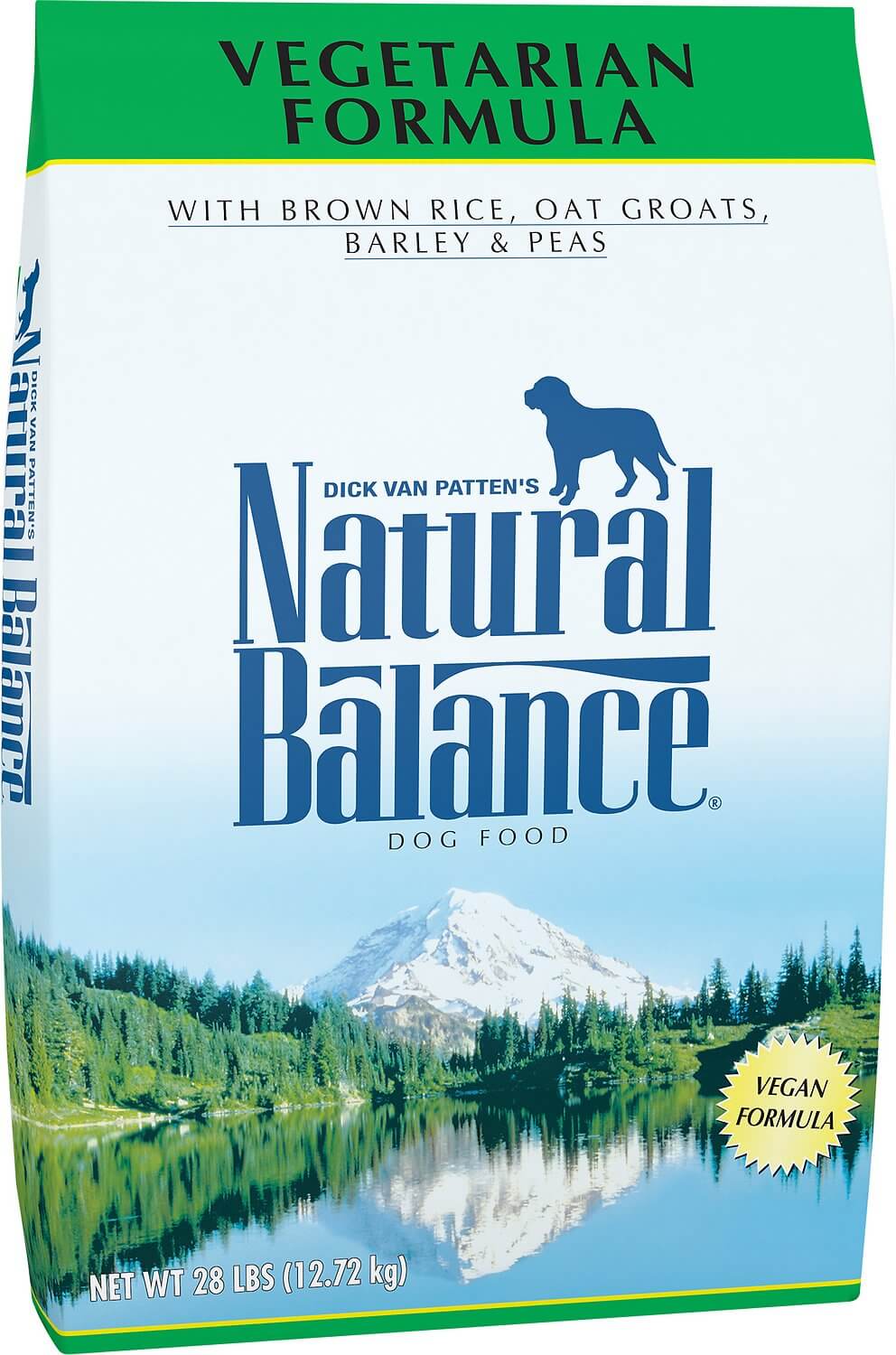
DogFoodAdvisor is reader supported See how
All reviews are 100% impartial but if you buy using links on this page, we may earn a referral fee.
Our Verdict
The Natural Balance Vegetarian product line includes one canned dog food, a recipe claimed to meet AAFCO nutrient profiles for adult maintenance.
Please note: This recipe is a vegetarian food so is currently unrated. This is because our review methodology favors dog foods rich in meat, and judging a plant-based diet against this criteria would always give a low rating. Studies of plant-based diets for dogs are showing some great results, as well as providing preferable options for many dogs with allergies or those wanting to choose more environmentally sustainable options.
Natural Balance Vegetarian Formula
Estimated Dry Matter Nutrient Content
Protein
Fat
CarbsCarbohydrates
Vegetable broth, potatoes, ground brown rice, ground barley, oats, potato protein, carrots, canola oil (preserved with mixed tocopherols), dried tomato pomace, ground flaxseed, natural vegetable flavor, agar-agar, dicalcium phosphate, vitamins (vitamin E supplement, vitamin A supplement, ascorbic acid (vitamin C), d-calcium pantothenate, thiamine mononitrate, niacin supplement, riboflavin supplement, vitamin D2 supplement, vitamin B12 supplement, biotin, pyridoxine hydrochloride, folic acid), calcium carbonate, minerals (zinc proteinate, iron proteinate, copper proteinate, manganese proteinate, sodium selenite, ethylenediamine dihydroiodide), potassium chloride, taurine, salt, choline chloride, natural smoke flavor, dried spinach, l-carnitine
Fiber (estimated dry matter content) = 1.5%
Red denotes any controversial items
| Estimated Nutrient Content | |||
|---|---|---|---|
| Method | Protein | Fat | Carbs |
| Guaranteed Analysis | 5% | 3% | NA |
| Dry Matter Basis | 23% | 14% | 56% |
| Calorie Weighted Basis | 20% | 30% | 50% |
Ingredients Analysis
The first ingredient in this dog food is vegetable broth. Broths are of only modest nutritional value. Yet because they add both flavor and moisture to a dog food, they are a common component in many wet products.
The second ingredient is potato. Potatoes can be considered a gluten-free source of digestible carbohydrates. Yet with the exception of perhaps their caloric content, potatoes are of only modest nutritional value to a dog.
The third ingredient is brown rice, a complex carbohydrate that (once cooked) can be fairly easy to digest. However, aside from its natural energy content, rice is of only modest nutritional value to a dog.
The fourth ingredient is barley. Barley is a starchy carbohydrate supplying fiber and other healthy nutrients. However, aside from its energy content, this cereal grain is of only modest nutritional value to a dog.
The fifth ingredient includes oat groats, a whole grain, minimally processed form of oats. With the exception of their caloric content and the fact they’re also gluten free, oat groats can be considered average in nutritional value.
The sixth ingredient is potato protein, the dry residue remaining after removing the starchy part of a potato.
Even though it contains over 80% protein, this ingredient would be expected to have a lower biological value than meat.
And less costly plant-based products like this can notably boost the total protein reported on the label — a factor that must be considered when judging the actual meat content of this dog food.
The seventh ingredient includes carrots. Carrots are rich in beta-carotene, minerals and dietary fiber.
The eighth ingredient is canola oil. Unfortunately, canola can be a controversial item. That’s because it can sometimes (but not always) be derived from genetically modified rapeseed.
Yet others cite the fact that canola oil can be a significant source of essential omega-3 fatty acids.
In any case, plant-based oils like canola are less biologically available to a dog than fish oil as a source of quality omega-3 fats.
The ninth ingredient is tomato pomace. Tomato pomace is a controversial ingredient, a by-product remaining after processing tomatoes into juice, soup and ketchup.
Many praise tomato pomace for its high fiber and nutrient content, while others scorn it as an inexpensive pet food filler.
Just the same, there’s probably not enough tomato pomace here to make much of a difference.
From here, the list goes on to include a number of other items.
But to be realistic, ingredients located this far down the list (other than nutritional supplements) are not likely to affect the overall rating of this product.
With four notable exceptions…
First, flaxseed, one of the best plant sources of healthy omega-3 fatty acids. Provided they’ve first been ground into a meal, flax seeds are also rich in soluble fiber.
However, flaxseed contains about 19% protein, a factor that must be considered when judging the actual meat content of this dog food.
We also note the use of taurine, an important amino acid associated with the healthy function of heart muscle. Although taurine is not typically considered essential in canines, some dogs have been shown to be deficient in this critical nutrient.
Next, sodium selenite a controversial form of the mineral selenium. Sodium selenite appears to be nutritionally inferior to the more natural source of selenium found in selenium yeast.
And lastly, this food contains chelated minerals, minerals that have been chemically attached to protein. This makes them easier to absorb. Chelated minerals are usually found in better dog foods.
Nutrient Analysis
Natural Balance Vegetarian canned dog food is — by design — a meatless product.
So, although we recognize the need for some dog owners to feed a meat-free diet, we also respect a dog’s natural carnivorous bias.
The dashboard displays a dry matter protein reading of 23%, a fat level of 14% and estimated carbohydrates of about 56%.
And a fat-to-protein ratio of about 60%.
Below-average protein. Below-average fat. And above-average carbs when compared to a typical canned dog food.
As you’d expect, this is obviously the profile of a canned dog food containing no meat.
Natural Balance Dog Food Recall History
The following automated list (if present) includes all dog food recalls related to Natural Balance through April 2025.
You can view a complete list of all dog food recalls since 2009 here.
Our Rating of Natural Balance Dog Food
Natural Balance Vegetarian is a grain-inclusive canned dog food using a moderate amount of potato protein as its main source of protein.
Compare Natural Balance Dog Food
How does Natural Balance compare with The Dog Food Advisor's most recommended brands?
A Final Word
The Dog Food Advisor does not accept money, gifts, samples or other incentives in exchange for special consideration in preparing our reviews.
However, we do receive a referral fee from online retailers (like Chewy or Amazon) and from sellers of perishable pet food when readers click over to their websites from ours. This helps cover the cost of operation of our free blog. Thanks for your support.
For more information, please visit our Disclaimer and Disclosure page.







